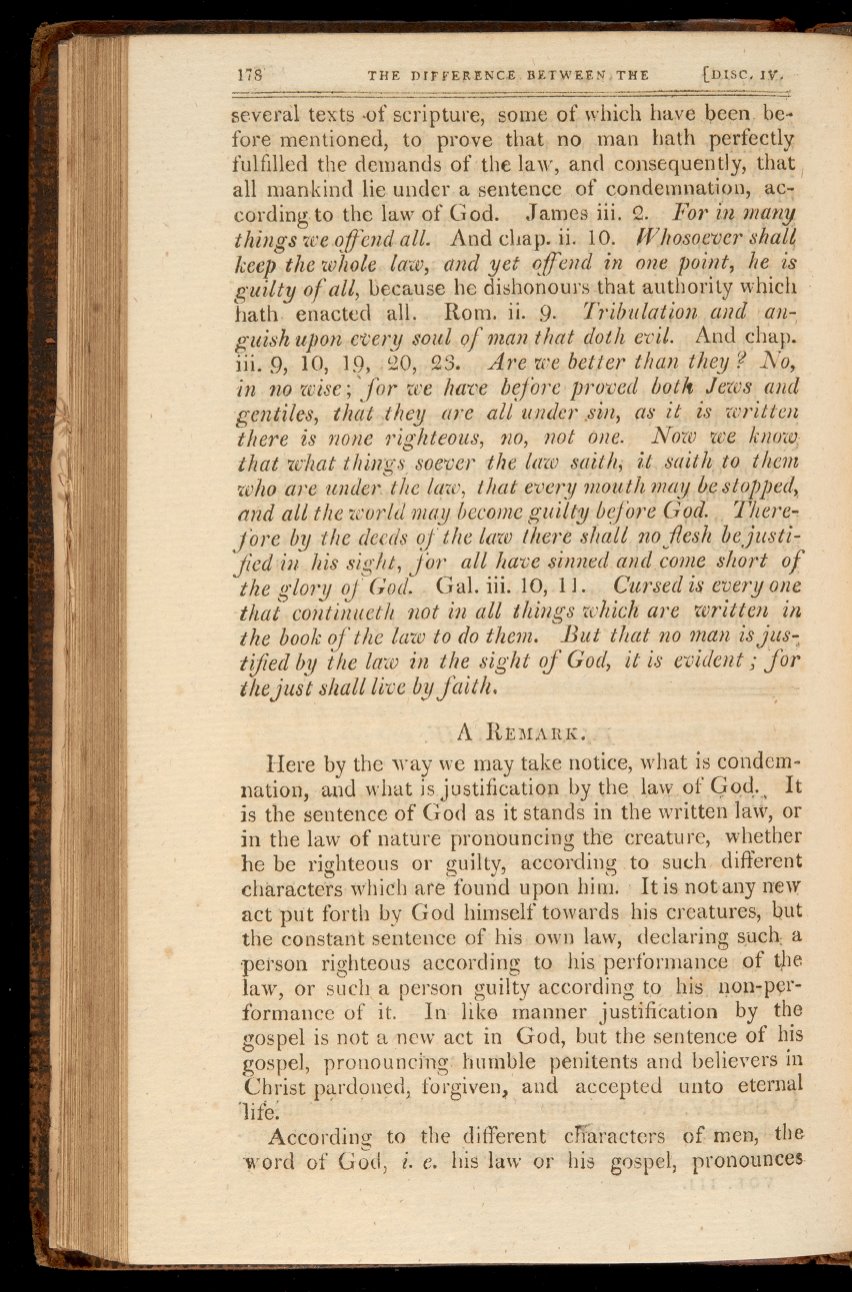

liS
THE DIFFERENC.E.
BETIi'EEN.TFIE
[DISC. IV,
several texts
.of
scripture,
some
of
which have been. be-
fore mentioned, to prove
that
no
man bath perfectly
fulfilled the
demands
of
the law, and consequently,
that
all
mankind
lie
under a
sentence
of
condemnation, ac-
cording
to the
law
of
God. James
iii.
Q.
For
in many
things
we.offend
all.
And
chap.
ii.
10.
Whosoever
shall
keep
the
whole law,
and
yet
(fend
in
one
point,
he
is
guilty
of
all, because
he
dishonours
that authority
which
bath
enacted
all. Rom.
ii.
9.
Tribulation and
an-
guish
upon
every soul
of
man
that loth
evil.
And chap.
üí.
9,
10,
19,
.20,
23.
Are
we
better than
they
?
_No,
in
no
wise;
for
we
have before
proved
both Jews
and
gentiles,
that
they
are all
under sin,
as
it
is
written
there
is none
righteous,
no,
not
one.
Now
we
know,
that
what things
soever
the
law
saith;
it
saith
to
them
who
are
under
the
law,
that
every mouth
may
be
stopped,
and
all
the world
may
become
guilty
bore
God.
There-
före
by
the
deeds
of
the
law
there
shall
no
flesh
bejusti-
fied'in
his
sight,
for
all
have sinned
and
come
short
of
the
glory
of God.
.
Gal.
iii.
10, 11.
Cursed
is
every
one
that
continueth
not
in
all
things
which
are written
in
the
book
of
the law
to
do
them.
But
that
no
man
is
jus-
tired
by
the
law
in
the
sight of
God,
it
is
evident;
for
the
just
shall
live
by
faith.
A
REnr.\-
ß,c.
Here
by
the way
we
may
take
notice,
what
is
condem-
nation,
and what
is
justification
by
the
law
of
God.,,
It
is
the sentence
of God
as
it stands
in
the written
law, or
in the
law
of nature pronouncing
the
creature,
whether
he
be
righteous or
guilty,
according
to such different
characters
which
are
found
upon
him.
It
is
not
any new
act
put
forth
by
God
himself towards
his
creatures,
but
the constant sentence of
his own law,
declaring
such,
a
person
righteous according
to his
performance
of
the
law, or
such,
a person
guilty according
to his,
non-per-
formance of
it.
In
like
manner justification
by the
gospel
is
not a
new
act
in
God, but the sentence of
his
gospel,
pronouncing: humble penitents and
believers
in
Christ
pardoned,
forgiven,
and accepted unto
eternal
"life.
According
to
the different
cfaracters of
men,
the
word
of
God,
i.
e.
his law
or
his
gospel,
pronounces

















